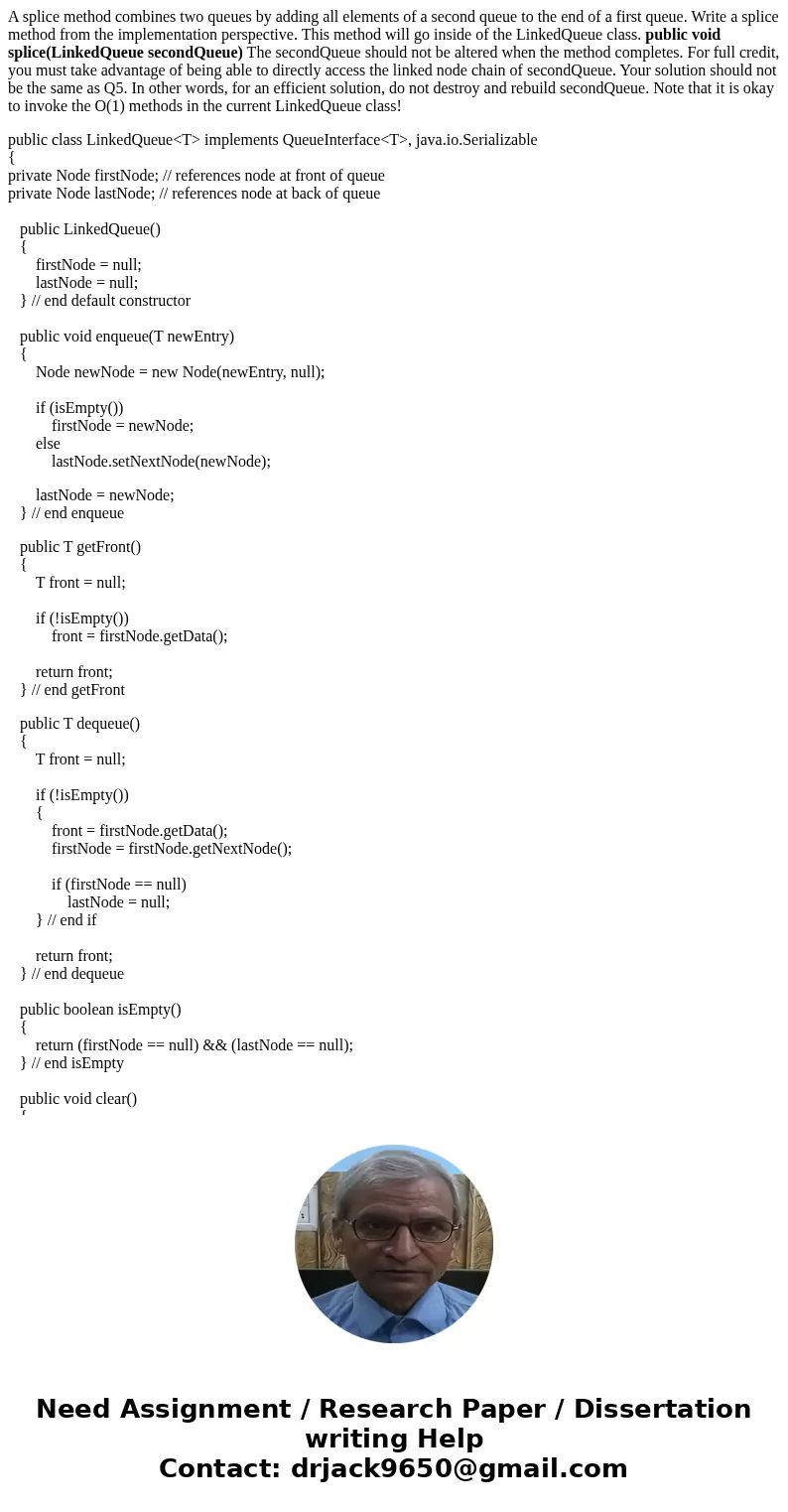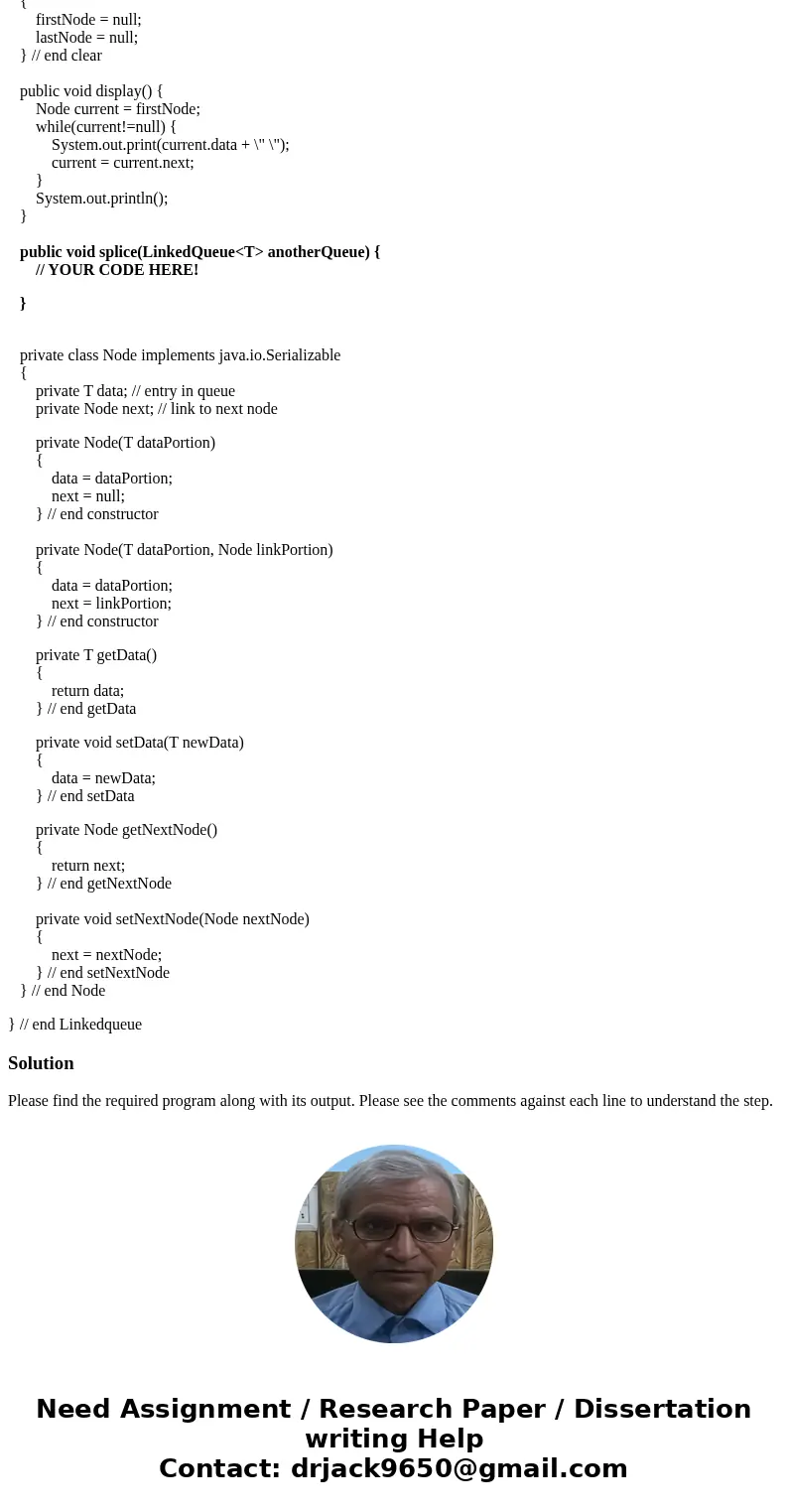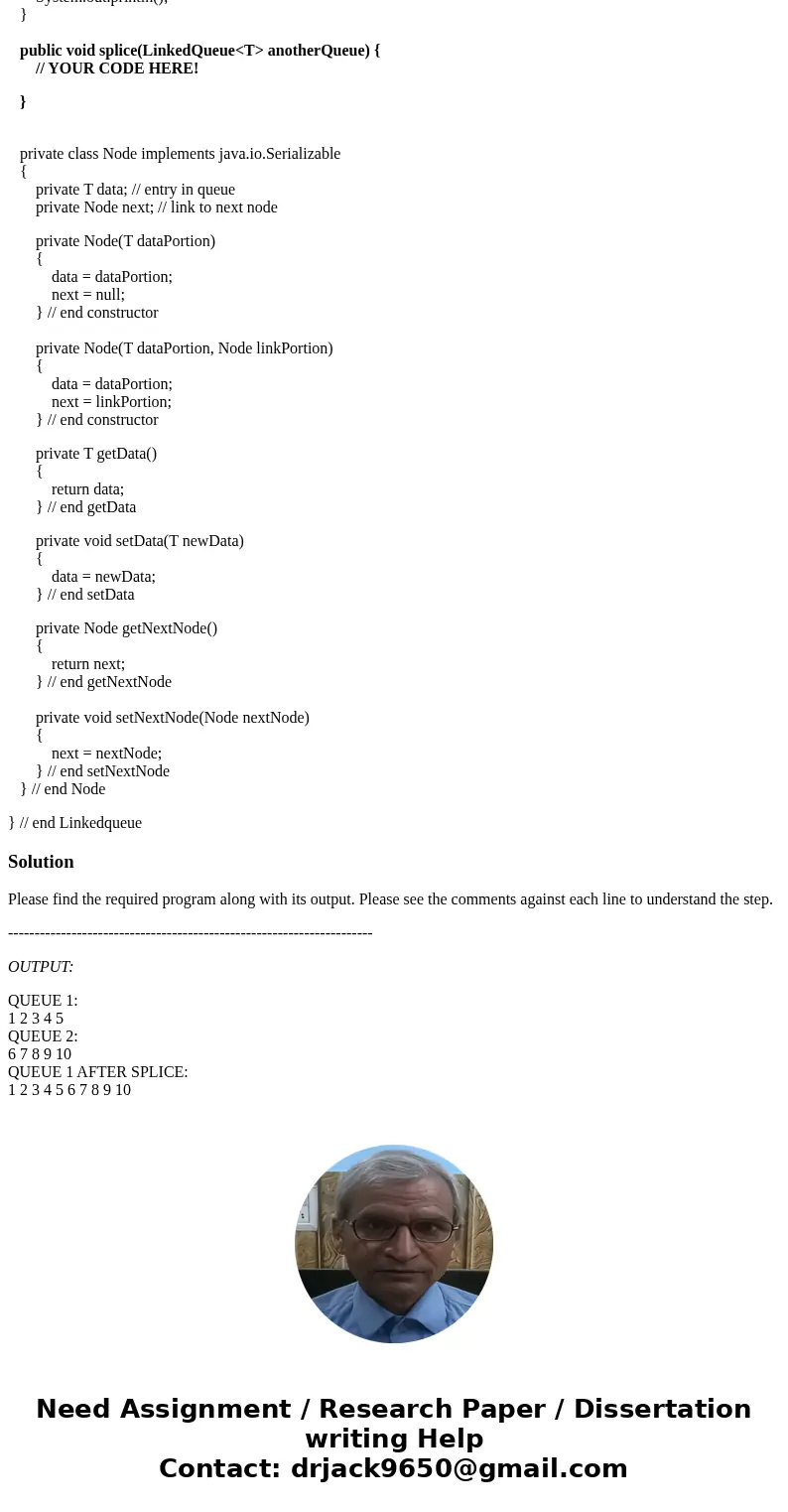A splice method combines two queues by adding all elements o
A splice method combines two queues by adding all elements of a second queue to the end of a first queue. Write a splice method from the implementation perspective. This method will go inside of the LinkedQueue class. public void splice(LinkedQueue secondQueue) The secondQueue should not be altered when the method completes. For full credit, you must take advantage of being able to directly access the linked node chain of secondQueue. Your solution should not be the same as Q5. In other words, for an efficient solution, do not destroy and rebuild secondQueue. Note that it is okay to invoke the O(1) methods in the current LinkedQueue class!
public class LinkedQueue<T> implements QueueInterface<T>, java.io.Serializable
{
private Node firstNode; // references node at front of queue
private Node lastNode; // references node at back of queue
public LinkedQueue()
{
firstNode = null;
lastNode = null;
} // end default constructor
public void enqueue(T newEntry)
{
Node newNode = new Node(newEntry, null);
if (isEmpty())
firstNode = newNode;
else
lastNode.setNextNode(newNode);
lastNode = newNode;
} // end enqueue
public T getFront()
{
T front = null;
if (!isEmpty())
front = firstNode.getData();
return front;
} // end getFront
public T dequeue()
{
T front = null;
if (!isEmpty())
{
front = firstNode.getData();
firstNode = firstNode.getNextNode();
if (firstNode == null)
lastNode = null;
} // end if
return front;
} // end dequeue
public boolean isEmpty()
{
return (firstNode == null) && (lastNode == null);
} // end isEmpty
public void clear()
{
firstNode = null;
lastNode = null;
} // end clear
public void display() {
Node current = firstNode;
while(current!=null) {
System.out.print(current.data + \" \");
current = current.next;
}
System.out.println();
}
public void splice(LinkedQueue<T> anotherQueue) {
// YOUR CODE HERE!
}
private class Node implements java.io.Serializable
{
private T data; // entry in queue
private Node next; // link to next node
private Node(T dataPortion)
{
data = dataPortion;
next = null;
} // end constructor
private Node(T dataPortion, Node linkPortion)
{
data = dataPortion;
next = linkPortion;
} // end constructor
private T getData()
{
return data;
} // end getData
private void setData(T newData)
{
data = newData;
} // end setData
private Node getNextNode()
{
return next;
} // end getNextNode
private void setNextNode(Node nextNode)
{
next = nextNode;
} // end setNextNode
} // end Node
} // end Linkedqueue
Solution
Please find the required program along with its output. Please see the comments against each line to understand the step.
---------------------------------------------------------------------
OUTPUT:
QUEUE 1:
1 2 3 4 5
QUEUE 2:
6 7 8 9 10
QUEUE 1 AFTER SPLICE:
1 2 3 4 5 6 7 8 9 10



 Homework Sourse
Homework Sourse